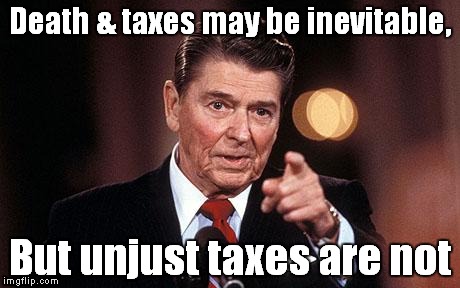Studies show that anywhere between 30 to 60 percent of taxpayer property in the United States is overassessed. This leads to unfairly high property tax bills. In spite of this, fewer than 5 percent of property owners challenge their property tax bill.

If your tax bill seems too high, the real question to ask yourself is not whether your tax bill is too high but why your tax bill is too high and whether it makes sense to appeal your tax assessment..
Here are a few reasons why your tax bill might be too high:
- The appraised value is too high.
The property’s appraised value is calculated based on the estimated fair market value of the property.
This can be a problem if:
- Your property’s appraised value is based on incorrect information (e.g. zoning, square footage, acreage, etc.).
- The value of your property is based on sales of “similar” properties that sold for more than they are worth. This can be particularly problematic if your property doesn’t fall into a neat category of “similar” properties.
- Your property was appraised at the peak of the market. Periodic county reappraisals are supposed to smooth out fluctuations in property values, but reappraisals performed at the wrong time can lead to a rise in assessed property values by 60 percent or more. Shortly after the market crashed in 2008, North Carolina passed legislation that allowed certain counties to retroactively reverse 2009 reappraisals due to overvaluations.
As we potentially head into another recession, it is important to keep tabs on the true value of your property and make sure you don’t become a victim of inflated valuations.
- The assessed value is too high.
Assessed value is calculated by multiplying the appraised value by the assessment ratio, which is based on the property’s statutory classification.
Most people are aware that the assessment ratio in South Carolina for owner occupied residential property is 4% and that the ratio for investment property is 6%. Many people, however, do not realize that other exemptions may be available based on the use of the property and the type of entity that holds title to the property.
This is where an attorney can help maximize your savings while balancing other the other interests, liabilities and goals associated with the property ownership.
- The calculated property tax is too high
The final number that appears on your tax bill property tax is calculated by multiplying the taxable value of your property by the appropriate millage rate.
Your property tax may be too high if the incorrect millage rate for your county and/or municipality is applied or the numbers were incorrectly calculated.
To check your millage rates, click here for South Carolina and here for North Carolina.
So when is it worth it to appeal?
Short answer: when the savings outweigh the costs. Property tax savings can be quantified as follows:
((Assessed value – true market value) x assessment ratio) x millage rate x years until you sell your property = Savings
For example, if your property is assessed at $1,500,000 and the value should be $1,200,000, you could yield the following in savings:
(($1,500,000 – $1,200,000) x .06) x .325) x 10 = $58,500 in potential savings
If you think your property has been overvalued and would like to discuss whether a potential appeal of your property tax valuation is worth the effort, please contact us.




